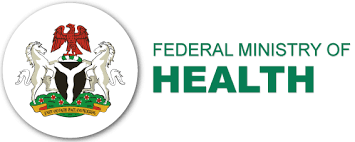Lanre Issa-Onilu, director-general of National Orientation Agency (NOA), has said the removal of petrol subsidy helped stabilise Nigeria’s economy and prevent several states from bankruptcy.
Gatekeepers News reports that writing in The Explainer, NOA’s weekly editorial publication, Issa-Onilu said Nigeria was spending 97 percent of its revenues to service debt when the present administration came into power.
He said, “Removal of subsidy did not only save the entire economy from imminent collapse, it also rescued several states of the federation from bankruptcy.”
“Upon the take-off of this incumbent administration, Nigeria was spending 97 percent of its revenues to service debts until its debt profile exceeded N100 trillion.”
“Fuel subsidies consumed more than 70 percent of potential federal government’s revenue, forcing both the central and state governments to resort to heavy borrowings to finance their budgetary expenditures, but the removal helped the country to save billions.”
“For instance, from N154.3 billion revenue in the first quarter of 2023, government’s revenue rose to N835.7 billion in the first quarter of 2024, saving about whooping N700 billion in less than one year.”
Issa-Onilu noted that these savings allowed the government to repay N7 trillion in Ways and Means borrowing in the first and second quarters of 2024 and exit the borrowing facility. It also enabled the clearance of about $7 billion in foreign exchange (FX) backlogs.
He said, “Whereas International Air Transport Association (IATA) had reported on June 5, 2023 that Nigeria had the highest amount of airlines’ trapped funds all over the world, by June 3, 2025, barely two years after, IATA had removed Nigeria from the list of countries owing forex backlogs.”
He said the subsidy savings also helped to “reduce debt service-to-revenue ratio from 97 percent in 2023 to 68 per cent in 2024; and pay off International Monetary Fund (IMF) debt which stood at $3.264 billion in June, 2023, first reducing it to $800.23 million in December, 2024 and cleared all in early 2025.”
Issa-Onilu noted that state governments are now benefitting significantly from increased revenue inflows, allowing them to pay salaries promptly even after over 100 percent increases in minimum wage and reduce their overall debt burdens.
He added, “In 2023, the 36 states of the federation and 774 local government areas (LGAs) got a total of N6.16 trillion as FAAC allocations, implying 28.6 percent increase from the N4.792 trillion they received in 2022.”
In 2024, however, the revenues rose dramatically to N15.26 trillion, with N9.58 trillion disbursed to states and LGAs—N3.42 trillion more than the previous year.











